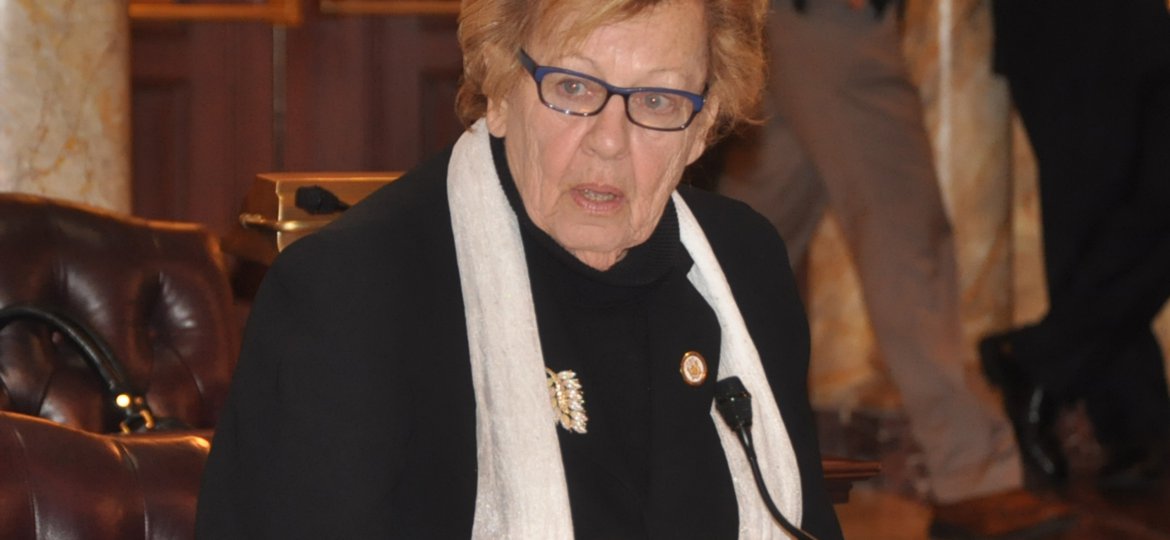
Weinberg, Turner, Sweeney Measure Would Guard Against Cost Shifts, Reduced Services & Job Losses
TRENTON – Acting to protect against irresponsible plans to privatize government services, the Senate on Monday approved legislation that would set basic standards to guard against reduced services, cost shifts and job losses for contracts that shift programs from the public to the private sectors.
Sponsored by Senate Majority Leader Loretta Weinberg (D-Bergen), Senator Shirley K. Turner (D-Mercer/Hunterdon) and Senate President Steve Sweeney (D-Salem/Cumberland/Gloucester), the bill, S-770, was approved with a vote of 24 to 14.
“Privatization is a solution in search of a problem,” said Senator Weinberg. “Many of these schemes result in reduced services, cost shifts, the loss of jobs and substandard wages. These deals may provide profits for private businesses but they can be a disservice to the public.”
“The public workforce provides a level of service to New Jersey’s taxpaying public at a cost that I think would be hard to match from the private sector,” said Senator Turner. “While there may be instances when privatization makes sense, the employees and the public must be protected and the integrity of services must be preserved. If savings cannot be achieved while adhering to these basic standards, then privatization isn’t in the best interest to New Jersey.”
“Privatization often offers false promises to the taxpayers with no real savings and no improvements to public service,” said Senator Sweeney. “Putting people out of work doesn’t help anyone, especially when the replacement jobs cut wages and benefits. This bill will set standards to protect against irresponsible privatization plans that can backfire.”
Senator Sweeney and Senator Weinberg recently attended a meeting of the New Jersey Turnpike Authority to advocate against a plan to privatize manual and electronic toll collections and customer services.
The legislation would ensure that no public service can be privatized unless there are real cost savings, no reduction in services and no lowered workforce standards. It would also require sustained oversight and public disclosure of privatized services to provide ongoing accountability.
The bill would establish procedures and standards whenever a public entity wants to privatize public services. Under the bill, a cost analysis demonstrating actual savings to taxpayers must be performed and a mechanism would have to be established to provide oversight and public disclosure to ensure that the purported “savings” are not achieved by increased charges on the public, reduced services or decreased workforce standards.
Specifically, the bill would prohibit the state and any other public entity in New Jersey from entering into a contract of $250,000 or more to purchase private entity services unless:
- The public entity solicits competitive, sealed bids for the contracts based on a comprehensive statement of requirements;
- The contract requires that the public not be charged fares, fees or other charges greater than those currently charged, and that the quantity and quality of the services provided must be equal to those provided under the public entity;
- The private contractor is qualified to perform the work, and contractor employees have qualifications and wage and benefits rates at least equal to public employees currently performing the services. Contractors under this bill would be required to submit payroll records to the public entity, and failure to pay the prevailing wage would be subject to penalties and remedies under the “New Jersey Prevailing Wage Act;”
- The public entity permits the union of the affected public workers to review current cost estimates and propose cost savings measures which are compliant with the standards under this bill.
The contractor would also have to comply with antidiscrimination standards and would be required to have no record of substantial or repeated noncompliance with federal or state laws.
The Office of the State Comptroller would be required to review the certification of cost savings and would prohibit the entity from entering into the privatization contract if the bid does not provide cost savings or comply with any of the bill’s requirements. And the State Auditor would be required to conduct post-audits to determine if the “cost savings” were obtained without raising charges, cutting services, or cutting workforce standards.
This bill would not apply to contracts for legal, management consulting, planning, engineering, design services, prevailing wage construction work, or work at certain disability and rehabilitation facilities. It would also not apply to any privatization contract first entered into before the effective date of the bill.


